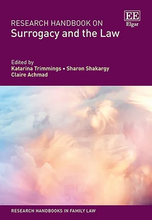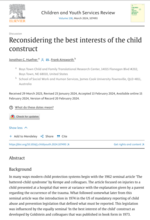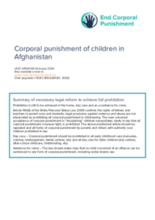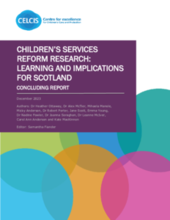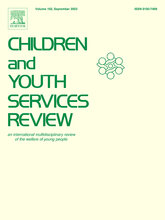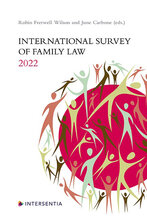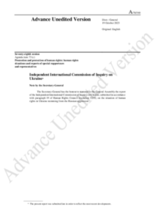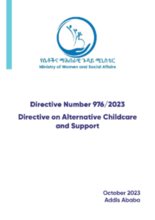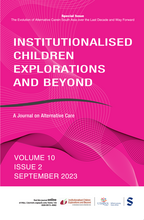Displaying 1 - 10 of 1727
This essential Research Handbook provides a multifaceted exploration of surrogacy and the law, examining a variety of critical yet under-researched perspectives including globalisation, power, gender, sexual orientation, genetics, human rights and family relations.
This article provides an overview of criticisms of the best interests construct and suggestions that the construct is a dated view about what is in a child’s best interests. There is a need for a new balance between explanations about child abuse and neglect (CAN) that takes account of poverty, social disadvantage, and the interests of children and their families.
This is a corporal punishment country report for Afghanistan. In Afghanistan, the Law on Protection of Child Rights 2019 prohibits corporal punishment in alternative care settings and in penal institutions.
The goal of this study was to improve the understanding of current children’s services structures and delivery models in Scotland and how services can best support the needs of children, young people and their families. The research looked at how services are provided and configured in Scotland and drew on a range of international evidence too.
The principal aim of this research review is to set out the nature of discipline and punishment in care settings in Scotland from 1920 to 2014.
This analysis considers foster care regulations in three jurisdictions in Finland, New Zealand, and Wisconsin, USA, and the effects of policy decisions on eligibility for relative caregivers and placement options for children in out-of-home care.
This research is part of a wider project commissioned by the Hong Kong Committee on Children’s Rights (HKCCR), a non-governmental organisation originally formed in 1992 to promote, advance and ensure the rights of the child in Hong Kong. The aim of the wider project was to establish an independent baseline study of the implementation of Article 12 across all relevant sectors in Hong Kong, from constitutional and high-level policy-making to health and education to matters of leisure, culture and built environment, amongst others.
The present report is submitted to the General Assembly by the Independent International Commission of Inquiry on Ukraine pursuant to Human Rights Council resolution 52/32, which renewed the Commission’s initial mandate for one additional year. The report concludes that "the collected evidence further shows that Russian authorities have committed the war crimes of wilful killing, torture, rape and other sexual violence, and the deportation of children to the Russian Federation.
Recognizing the increasing number of orphans and vulnerable children (OVC) and the need to provide standardized and quality alternative childcare and support services, The Ministry of Women and Social Affairs (MOWSA) in collaboration with pertinen
This article explores the existing policies and services that are prevalent in Bhutan that are enhancing childcare and protection. It also tries to bring forth the good practices that are currently in place and how it can be strengthened further by addressing challenges within the system. It also provides insight into history and evolution, and role of stakeholders involved in alternative care in the country.

